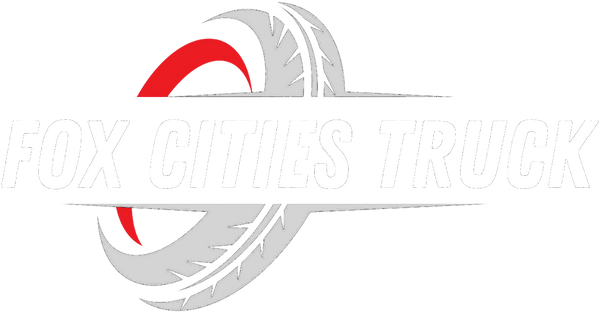
Clunking Sounds When Turning? Here’s What Could Be Broken
Share
Introduction
Have you ever heard a mysterious clunk when you turn your steering wheel? You’re not alone. Whether it's a sharp corner or a slow curve, a truck clunking noise when turning can be downright alarming. It's like your truck is trying to tell you something—and trust me, it’s best to listen before things get worse. Let's break it down together and figure out what might be going on under the hood (or under the wheels!).
What Does a Clunking Sound Mean?
Think of your truck like your own body. When something feels off, you notice it—maybe a weird ache or a sharp pain. A clunking noise is your truck’s way of saying, "Hey, something’s not right!" It often points to loose or broken parts around the suspension, steering, or wheels.
Why It’s Important to Pay Attention
Ignoring a truck clunking noise when turning is like ignoring chest pains—it might seem minor now but can lead to major trouble later. Parts that are clunking could fail completely, putting your safety at risk.
Common Causes of Clunking When Turning
There’s no one-size-fits-all answer here. Trucks are complex beasts, and several things could be causing that clunk. Let’s go through the most common culprits.
Worn Out Ball Joints
Ball joints connect your truck’s wheels to its suspension. When they wear out, they can wiggle or pop when you turn. Imagine a loose bone joint in your elbow—that's basically what's happening in your truck.
Key signs:
- Clunking when turning or going over bumps
- Uneven tire wear
- Steering feeling loose
Damaged CV Joints
Constant velocity (CV) joints allow your wheels to move up and down while also turning. If they’re cracked or leaking grease, you’ll often hear a clunk, especially during sharp turns.
Key signs:
- Grease splattered inside wheel wells
- Clicking or clunking sounds while turning sharply
Loose Steering Components
Your steering system has a lot of parts, and even one loose bolt can create that clunk. Tie rods, pitman arms, and idler arms are common troublemakers.
Key signs:
- Wandering steering wheel
- Delayed steering response
Bad Suspension Bushings
Bushings are small rubber cushions that absorb shock and allow smooth movement. Over time, they crack and deteriorate, especially if you drive over rough roads often.
Key signs:
- Clunking over bumps and when turning
- Vibration through the steering wheel
Broken Sway Bar Links

Sway bars help keep your truck stable during turns. If the links are broken, your truck might lean more in corners and make clunking noises.
Key signs:
- Poor handling around curves
- Loud clunks during turns
Faulty Wheel Bearings
Wheel bearings support your truck’s weight and allow the wheels to spin smoothly. When they fail, they can make all kinds of weird noises, including clunks.
Key signs:
- Humming or grinding sounds
- Clunking that gets worse when turning one direction
Cracked or Damaged Control Arms
Control arms are vital parts of your suspension. They hold everything in place. If they’re cracked, bent, or loose, you’ll definitely hear and feel it.
Key signs:
- Drifting or pulling to one side
- Loud clunks during steering or braking
Power Steering Problems
If the clunking comes with a whine or stiff steering, your power steering might be to blame. Fluid leaks or pump issues can make turning harder and noisier.
Key signs:
- Stiff steering wheel
- Whining noise along with clunks
When It’s Safe to Keep Driving (and When It’s Not)
Minor noises that don’t change over time might not be urgent—but most clunking sounds mean you should see a mechanic soon. If your truck feels unstable, pull over and call for help.
How Mechanics Diagnose the Issue
Mechanics often start with a visual inspection, then jack up the truck to wiggle wheels and parts. They might also take a test drive to pinpoint when and where the clunk happens.
DIY Checks You Can Try at Home
Feeling handy? Here’s a quick checklist:
- Check for loose wheels (wiggle test)
- Look under your truck for obvious damage
- Inspect CV boots for grease leaks
- Check power steering fluid levels
If you spot something off, it’s time for a professional fix.
Cost to Repair Truck Clunking Noises
Costs can vary wildly depending on what’s wrong.
- Ball joint replacement: $200–$400
- CV joint repair: $300–$800
- Wheel bearings: $250–$600
- Steering/suspension repairs: $150–$1,000+
Catching problems early can save you serious cash!
Conclusion
A truck clunking noise when turning is more than just an annoying sound—it's your truck waving a big red flag. Taking the time to diagnose and repair the issue can protect your wallet, your safety, and the life of your vehicle. Don’t wait until a little clunk turns into a full-blown crash. Trust your ears, trust your gut, and get it checked out!
FAQs
1. Is it safe to drive with a clunking noise when turning?
It depends on the cause. Minor issues might not be urgent, but major ones could lead to loss of control. Always get it checked out quickly.
2. How much does it cost to fix a truck clunking noise when turning?
Repairs can range from $150 to over $1,000 depending on which part is broken.
3. Can a bad wheel bearing cause clunking sounds when turning?
Yes! Bad wheel bearings often cause clunks, humming noises, or grinding, especially when making turns.
4. What happens if I ignore a clunking sound in my truck?
Ignoring the noise can lead to bigger, costlier problems like complete steering or suspension failure.
5. How can I tell if my ball joints are causing the clunking?
Look for uneven tire wear, loose steering, and clunking noises when turning or going over bumps. A mechanic can confirm for sure.
